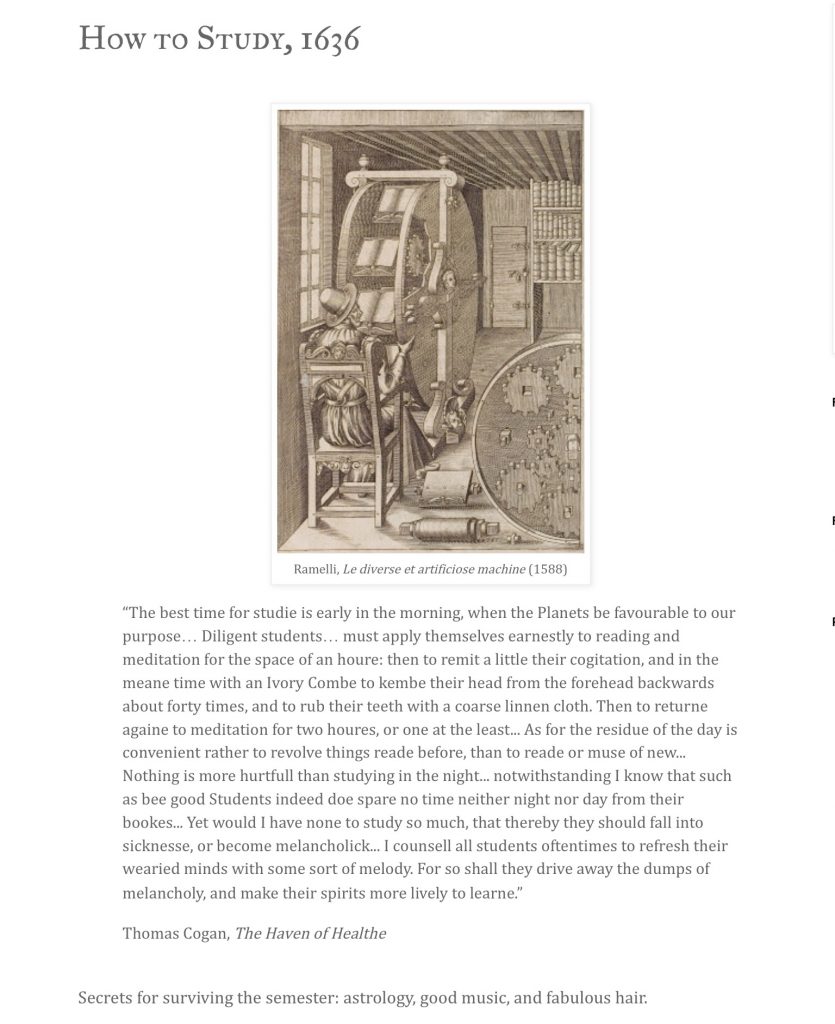
Please note that the vocabulary & grammar synopses below are for *everything* at the end of each chapter (because that’s what’s on these pages); your tests or exam won’t necessarily include everything in any given chapter. Please refer to the syllabus > general schedule for specifics on which compétences are included and which ones aren’t.
QUICK NAVIGATION
QUIZZES = you may find it useful to prepare using the the vocabulary pages at the end of each chapter and the ebook’s audio flashcards. Note that these work better in Chrome than Safari, if using an iOS device.
TESTS
TEST 1: CHAPTER 5
- FORM: closed book = no textbook, ebook, dictionaries, electronic devices, or other materials; in class; timed to take 10-15 minutes. You may ask your instructor or invigilator questions.
- NB: because this test is closed-book, you will NOT be expected to know every single word of French up to the end of ch. 1 in Horizons: this is not a test of mechanical parroting, nor a test of how much you have off by heart in short-term memory: it’s a test on using French, on the application of knowledge, on learning. If you are stuck for a word, please ask your instructor or invigilator: they will be able to give you at least a hint or a clue, even if (depending on your question and its context) they might not be able to give you the exact answer (for example, in the grammar exercises at the start of the test).
- TEST FORMAT:
Grammar & vocabulary exercises (multiple-choice, fill-in-the-blanks, finishing sentences, open-ended writing answering open-ended questions). Answer in French. - ch. 5: synopsis of grammar and vocabulary
- guide to the iLrn exercises
- going beyond the regular set exercices: how to use iLrn for extra practice and revision, including flashcards for vocabulary
TEST 2: CHAPTER 6
- FORM: closed book = no textbook, ebook, dictionaries, electronic devices, or other materials; in class; timed to take 10-15 minutes. You may ask your instructor or invigilator questions.
- NB: because this test is closed-book, you will NOT be expected to know every single word of French up to the end of ch. 2 in Horizons: this is not a test of mechanical parroting, nor a test of how much you have off by heart in short-term memory: it’s a test on using French, on the application of knowledge, on learning. If you are stuck for a word, please ask your instructor or invigilator: they will be able to give you at least a hint or a clue, even if (depending on your question and its context) they might not be able to give you the exact answer (for example, in the grammar exercises at the start of the test).
- TEST FORMAT:
Grammar & vocabulary exercises (multiple-choice, fill-in-the-blanks, finishing sentences, open-ended writing answering open-ended questions). Answer in French. - ch. 6: synopsis of grammar and vocabulary
- guide to the iLrn exercises
- going beyond the regular set exercices: how to use iLrn for extra practice and revision
TEST 3: CHAPTER 7
- FORM: closed book = no textbook, ebook, dictionaries, electronic devices, or other materials; in class; timed to take 10-15 minutes. You may ask your instructor or invigilator questions.
- NB: because this test is closed-book, you will NOT be expected to know every single word of French up to the end of ch. 2 in Horizons: this is not a test of mechanical parroting, nor a test of how much you have off by heart in short-term memory: it’s a test on using French, on the application of knowledge, on learning. If you are stuck for a word, please ask your instructor or invigilator: they will be able to give you at least a hint or a clue, even if (depending on your question and its context) they might not be able to give you the exact answer (for example, in the grammar exercises at the start of the test).
- TEST FORMAT:
Grammar & vocabulary exercises (multiple-choice, fill-in-the-blanks, finishing sentences, open-ended writing answering open-ended questions). Answer in French. - ch. 7: synopsis of grammar and vocabulary
- guide to the iLrn exercises
- going beyond the regular set exercices: how to use iLrn for extra practice and revision
TEST 4: CHAPTER 8
- FORM: closed book = no textbook, ebook, dictionaries, electronic devices, or other materials; in class; timed to take 10-15 minutes. You may ask your instructor or invigilator questions.
- NB: because this test is closed-book, you will NOT be expected to know every single word of French up to the end of ch. 2 in Horizons: this is not a test of mechanical parroting, nor a test of how much you have off by heart in short-term memory: it’s a test on using French, on the application of knowledge, on learning. If you are stuck for a word, please ask your instructor or invigilator: they will be able to give you at least a hint or a clue, even if (depending on your question and its context) they might not be able to give you the exact answer (for example, in the grammar exercises at the start of the test).
- TEST FORMAT:
Grammar & vocabulary exercises (multiple-choice, fill-in-the-blanks, finishing sentences, open-ended writing answering open-ended questions). Answer in French. - ch. 8: synopsis of grammar and vocabulary. Note that compétence 4 is NOT included and will not be tested.
- guide to the iLrn exercises
- going beyond the regular set exercices: how to use iLrn for extra practice and revision

FINAL EXAMINATION
(ch. 5-9 inclusive)
- see also: the final examination
- language-learning being cumulative, here are grammar and vocabulary synopses from the end of each chapter of Horizons that were worked on in FREN 101:
- grammar and vocabulary synopses, from the end of each chapter of Horizons that we’ve worked on in FREN 102:
- ch. 5: synopsis of grammar and vocabulary
- ch. 6: synopsis of grammar and vocabulary
- ch. 7: synopsis of grammar and vocabulary
- ch. 8: synopsis of grammar and vocabulary. Note that compétence 4 is NOT included and will not be examined.
- ch. 9: synopsis of grammar and vocabulary. Note that compétence 3 is NOT included, and compétence 4 material (= prepositions of place + cities, countries, etc.) will not be specifically examined, it is recognition-only or in the composition; the exercise on that which was in previous versions of the final exam has been removed
- the April 2016 exam minus the actual questions, plus a couple of tips
- PRACTICE EXAMS
- practice exam: April 2017 + corrected version / answer key
- practice exam: April 2016 + corrected version / answer key
- practice exam: April 2015 + corrected version (including marking guidance comments for instructors, in French): note that there is an extra grammar exercise on here (end of PART I) that’s not on the 2016 & 2017 exams
- PRACTICE EXERCISES
SEE ALSO
- THE RULES > Missing or rescheduling tests & examinations
- THE RULES > UBC exam policies & accommodations

GUIDANCE ON REVISION FOR FRENCH (AND OTHER LANGUAGE) TESTS & EXAMS
The good news about FREN 101 & 102 exams is that you should not have any revision to do; none of the sorts of “studying” that are needed in some other kinds of course and academic field.
French is a language; and language-learning is more like music or sport than, say, biology or economics. Language-learning is cumulative—with new knowledge building on previous acquisitions—and happens and is reinforced through regular practice. If you have been to class, worked in class, and worked on your online exercises outside class: ideally, doing some French every day: then you should be well prepared for all the quizzes, tests, and exams in FREN 101 & 102.
What more can you do?
Work on the online exercises: revision for tests and exams is one of the reasons you have multiple attempts and no deadline for them!
You can also do other exercises in iLrn (these are optional, in that they do not count towards your grade), and redo exercises worked on in class from the textbook (and indeed other exercises from the textbook too; these, too, are optional and do not count towards your final grade)
Work in shorter intensive stretches (maximum 20 to 30 minutes), with regular breaks. Set an alarm or a timer, to ensure that you have a break for at least 5-10 minutes every hour.
Eat.
Sleep.
Exercise, especially outdoors in the fresh air. (If your parents and other family tell you this all the time: give them a hug from me.)

DORMIR est le verbe le plus important en français (nos 2-10 = RÊVER, RÊVASSER, SONGER, IMAGINER, FLÂNER, FAINÉANTER, SE PROMENER, VAGUER, VAGABONDER…)
Read, watch, and listen to some French every day: even 5 minutes of skim-reading newspaper headlines online. Any French, from any Francophone place, on any subject. This is also a good excuse to watch a movie in French (in French, preferably with sub-titles in French too). You might already find it useful and easy to watch the “Élodie” videos on iLrn: go to the Video Library, and start with “Chapitre préliminaire” > “Élodie” is always the second item there (the first item is discussed in the next bullet-point).
BONUS: some useful practical general tips and advice from Timothy Gowers (Mathematics, University of Cambridge) > scroll down to “General study advice”
(THE FOLLOWING TIPS ARE MORE FOR THE FINAL EXAM)
“Self-tests” in iLrn may be helpful: I would recommend doing these together with one or two other students. These are mainly intended for practice before the final exam, rather than chapter tests and the midterm, but if you are working with some other students in a study-group this is good material on which to work.
The “Reprises” sections at the end of some chapters, accompanied by their videos and exercises. These are on iLrn > Video Library > chapter (pick whichever chapter you are working on, or go through them all one by one) > the first item, “Les Stagiaires.”

GENERAL GUIDANCE ON EXAMS
UBC resources for stress-relief for students
- Stress: http://students.ubc.ca/livewell/topics/stress
- Anxiety: http://students.ubc.ca/livewell/topics/anxiety
- Sleep: http://students.ubc.ca/livewell/topics/sleep (I cannot over-emphasise the importance of sleep, for general health as well as for brains & exams; UBC and research colleagues in psychology and neuroscience do too. It’s not just me.)
- Nutrition: http://students.ubc.ca/livewell/topics/nutrition-and-food
- Physical activity and recreation: http://students.ubc.ca/livewell/topics/physical-activity-and-recreation
Including events on campus:
UBC links:
- UBC Learning Commons: in the main menu, see especially the pages in
“(tutoring and) studying” and
“student toolkits” - exam preparation (via UBC CTLT), see especially:
- learning & memory (UBC Learning Commons)
- exam preparation & writing (SFU)
- overcoming exam anxiety (SFU)

